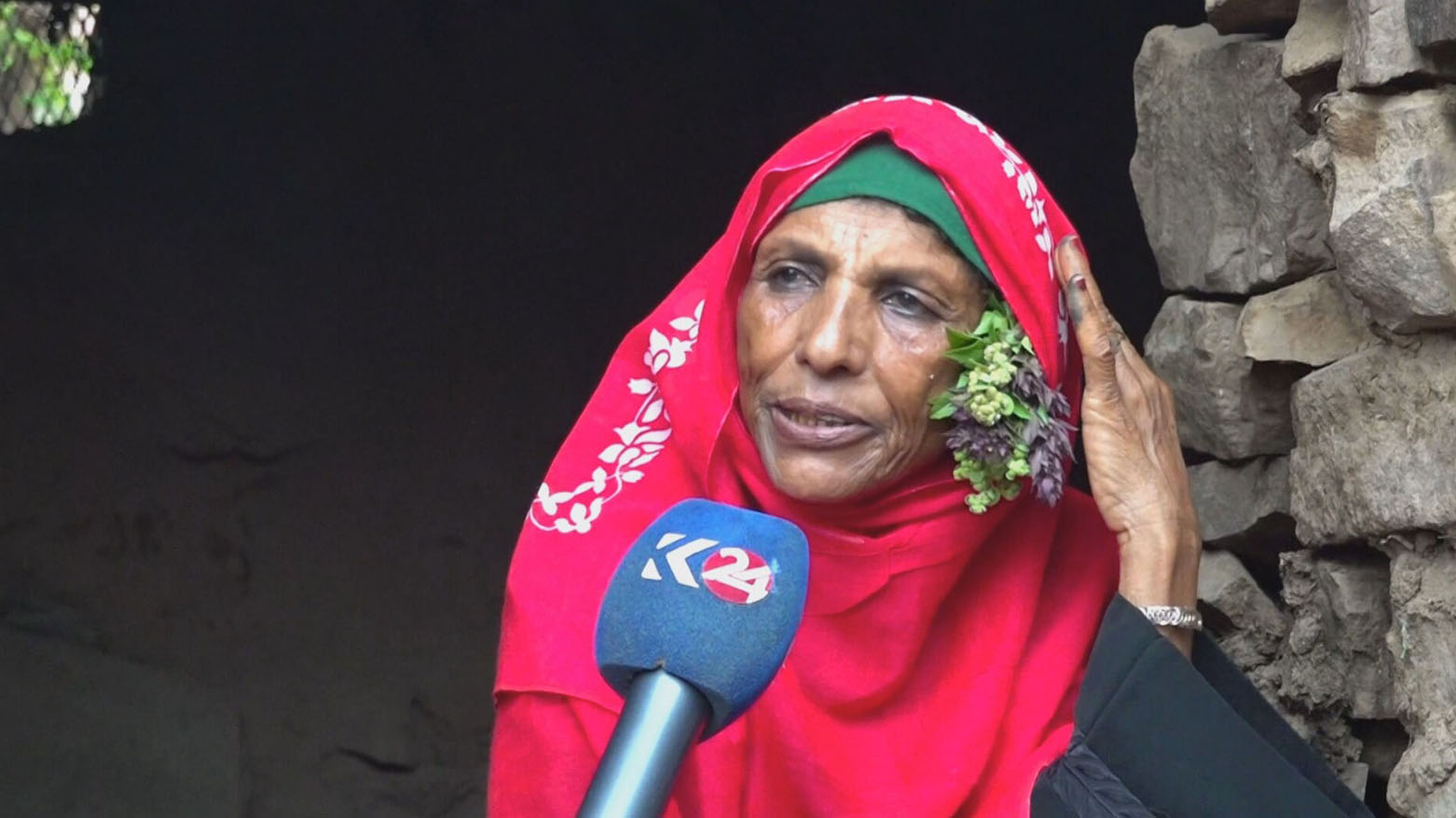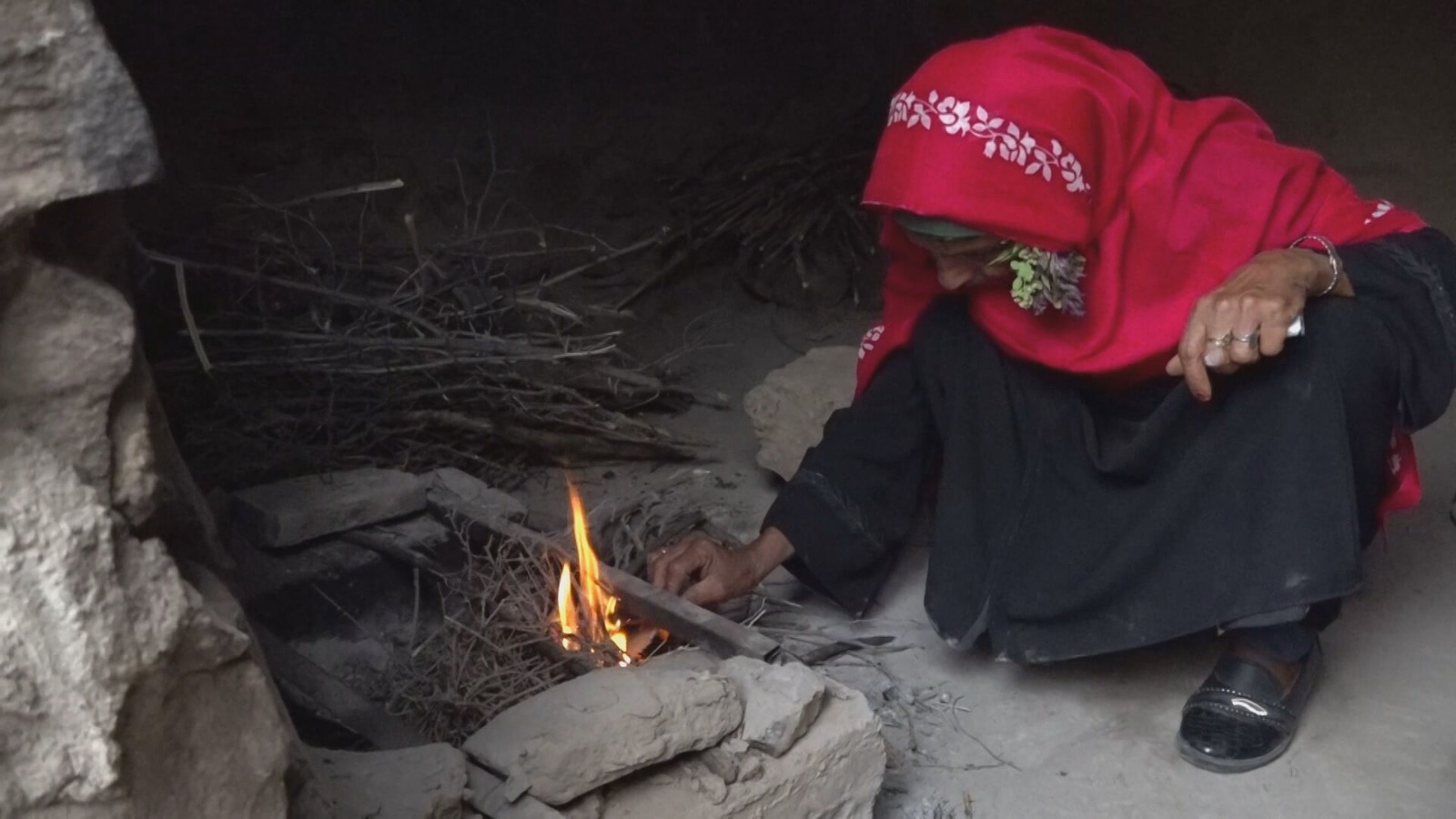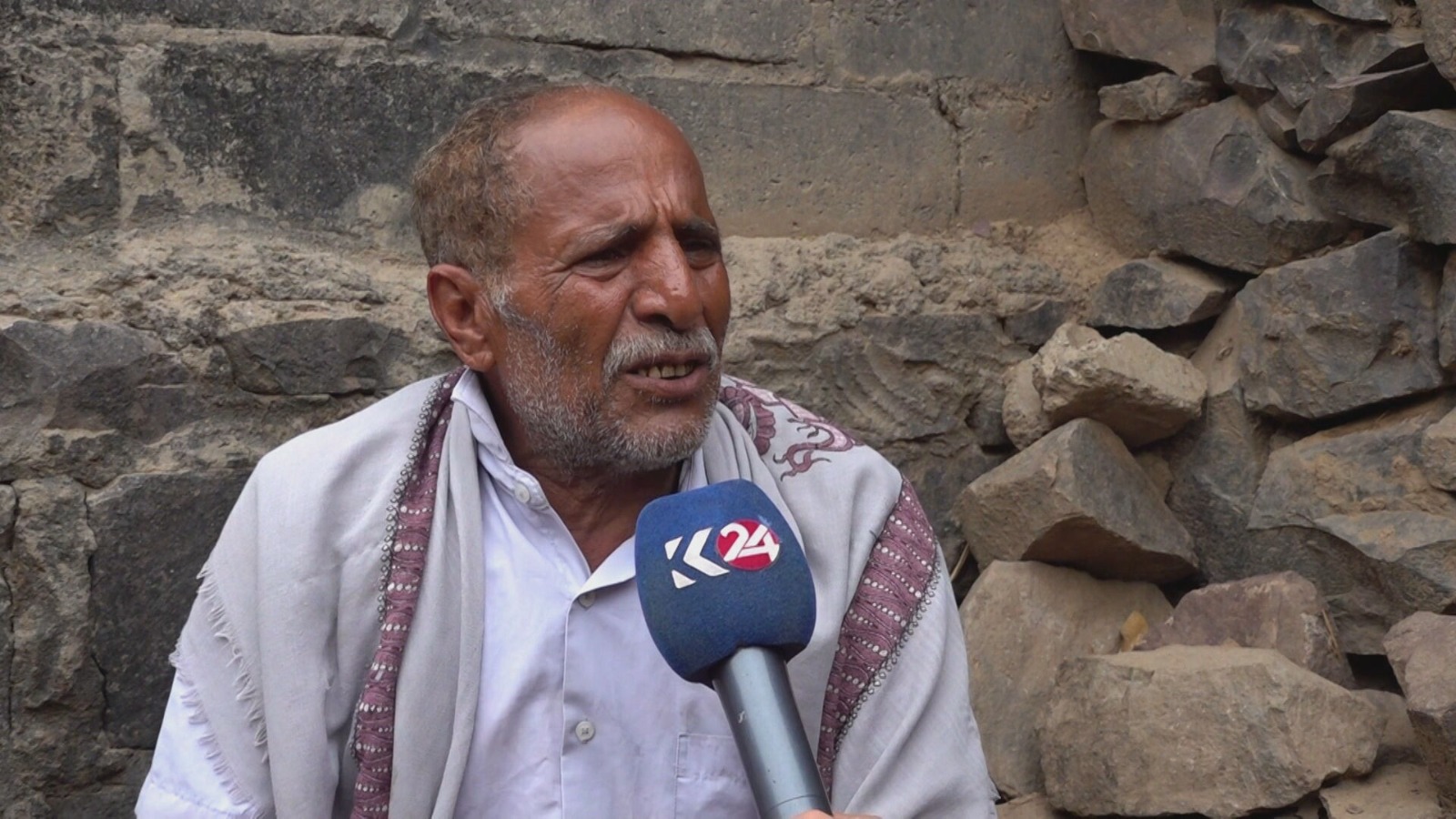Ancient Flames: Cauterization Outlives Modern Medicine in Yemen
In her humble rural home, Hajja Huda Saif prepares for another fire cauterization session. Surrounded by simple tools and a wood-burning stove, she heats a metal rod known locally as al-maysam.

By Kamaran Aziz
ERBIL (Kurdistan24) – In the rugged countryside of Yemen’s Taizz Governorate, where access to modern healthcare remains scarce, ancient healing traditions continue to thrive. Among the most prominent is fire cauterization — a time-honored practice passed down through generations and still widely used today despite advancements in conventional medicine.
In her humble rural home, Hajja Huda Saif prepares for another fire cauterization session. Surrounded by simple tools and a wood-burning stove, she heats a metal rod known locally as al-maysam. For her and many others, this centuries-old method is not just an alternative therapy but a respected healing art deeply woven into the cultural fabric of Yemeni rural life.

“We use al-maysam to treat various ailments,” Huda explained to Kurdistan24’s correspondent Ayman Qaid. “For example, we cauterize the center of the head for jaundice, the forehead if someone has experienced a traumatic scare, and the lower back for those with mobility issues.”
Standing nearby is her husband, Abdelqader, whose scalp bears the evidence of numerous treatments. A staunch advocate of cauterization, he swears by its effectiveness. “I have never visited a doctor,” he said proudly. “If I feel feverish or exhausted, I ask my wife to treat me. I haven’t taken any medicine in years. I believe this is better than going to a doctor.”

For Huda, this is more than a family tradition — it is a calling. She inherited the skill from her parents and has built a reputation in her village and surrounding areas. Many locals revere her as a healer, trusting her methods over formal medical institutions, especially in a country where such facilities are often inaccessible due to conflict, poverty, or distance.
Children in these communities are introduced to cauterization at a young age. Many undergo treatments early in life and grow up familiar with its pain and purpose, embodying a cultural ethos that views traditional medicine not only as a necessity but as a cornerstone of identity and resilience.
As Yemen continues to grapple with instability and limited healthcare infrastructure, such practices endure — a testament to the strength of local knowledge and the enduring belief in remedies born from fire, experience, and ancestral wisdom.
Report by: Ayman Qaid – Kurdistan24 Correspondent in Yemen – Taizz
